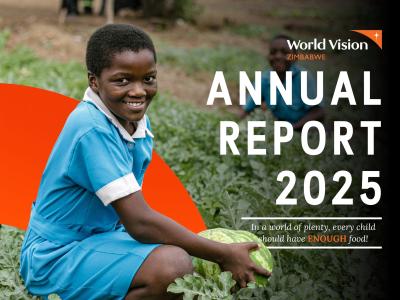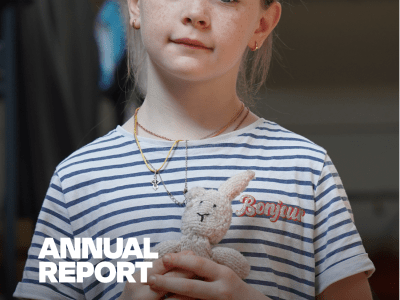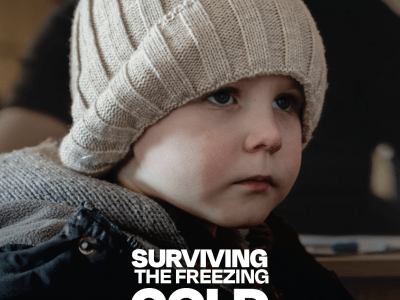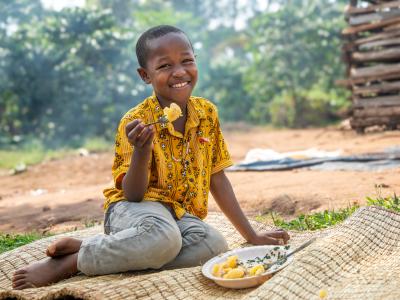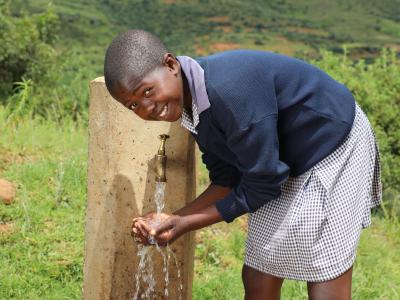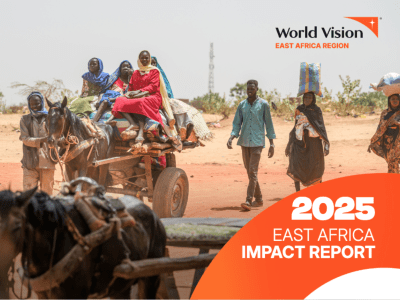publication / February 17, 2026
World Vision Zimbabwe 2025 Annual Report
In this 2025 Annual Report, discover powerful stories that highlight World Vision Zimbabwe's (WVZ) transformative impact on the lives of the most vulnerable children. Driven by an unshakable dedication to championing the well-being of girls and boys in need, we are strategically refocusing and amplifying our efforts to tackle extreme vulnerability head-on.
publication / February 18, 2026
Annual Report 2025: Standing With Children Through Four Years of War in Ukraine
As the Ukraine Crisis Response enters its fifth year, the war continues to devastate millions of lives, particularly children. Over the past four years, World Vision Ukraine has reached more than 2.3 million people, including over 1 million children, providing critical support in education, mental health, protection, cash assistance, livelihoods, basic needs services and winterisation.
publication / February 12, 2026
Surviving the Freezing Cold Under Fire: How Winter Disrupts Education and Mental Health Support for Ukrainian Children
As winter hardship intensifies in Ukraine, 100% of surveyed families report extreme conditions where a lack of heat, electricity, and education is pushing children to a breaking point. This briefing outlines the urgent need for flexible funding and support to protect families from a cumulative humanitarian crisis.
article / February 13, 2026
Hope at Last: Water for Life Project Delivers Safe Water to Jang Community
For decades, the children and families of Jang—a farming community in the Sawla-Tuna-Kalba District of the Savannah Region—struggled with limited access to clean water, relying on unsafe sources that exposed them to waterborne diseases and daily hardship. But returned after World Vision Ghana and partner, GIZ commissioned a solar-powered mechanised water system.
opinion / February 19, 2026
Justice begins when no child goes hungry
A society that allows children to go to bed hungry violates not only economic logic, but basic human rights.
press release / February 13, 2026
Empowering Africa’s Children: World Vision Presents Child‑Friendly Africa Union Convention on Ending Violence Against Women and Girls
Empowering Africa’s Children: World Vision Presents Child‑Friendly AU Convention on Ending Violence Against Women and Girls
article / February 19, 2026
From Fear to Dignity: How Access to Clean Water and Safe Sanitation Transformed Senate’s Life
Access to clean water and safe sanitation through World Vision’s WASH program transformed Senate’s health, safety, and everyday wellbeing.
opinion / February 19, 2026
A Just Transition Cannot Succeed While Children Go Hungry
We cannot build resilient labour markets on foundations weakened in childhood. If children grow up hungry, the transition will falter before it begins.
article / February 16, 2026
Advancing Social Inclusion of Women and Children in Climate Action across ASEAN
Article on the Regional Dialogue on Sharing Good Practices and Lessons Learned on Social Inclusion of Climate Change on Women and Children in ASEAN
publication / February 23, 2026
World Vision East Africa Impact Report 2025
Despite escalating conflict, climate shocks, economic instability and widespread displacement, we reached over 26 million people, including 16.4 million children
